This article was co-authored by Lyssandra Guerra. Lyssandra Guerra is a Certified Nutrition & Wellness Consultant and the Founder of Native Palms Nutrition based in Oakland, California. She has over five years of nutrition coaching experience and specializes in providing support to overcome digestive issues, food sensitivities, sugar cravings, and other related dilemmas. She received her holistic nutrition certification from the Bauman College: Holistic Nutrition and Culinary Arts in 2014.
There are 8 references cited in this article, which can be found at the bottom of the page.
wikiHow marks an article as reader-approved once it receives enough positive feedback. This article received 13 testimonials and 100% of readers who voted found it helpful, earning it our reader-approved status.
This article has been viewed 294,327 times.
Health is something that is easy to take for granted. When we start losing it, it's hard to believe we spent so long not valuing it. To ensure that you stay as healthy as possible, we've outlined a guide that should help you do just that -- detailing your physical, mental, and emotional health. Why would you want to live any other way?
Steps
Having a Healthy Diet
-
1Emphasize fruits and veggies. A healthy diet is one that's full of vitamins, nutrients, and color (well, in addition to being balanced). And the easiest way to do this is through piling on the fruits and veggies.[1] They're nutrient dense but not calorically dense -- meaning you can eat bunches and bunches without destroying your waistline and it's good for you. And, of course, the fresher the better!
- Most all fruits and veggies are good for you, but some are better for you than others, arguably. If you really want to zero in on mother nature's power, you'll add kale, spinach, carrots, celery, cranberries, blueberries, and pineapple to next week's grocery cart.[2] That's every color of the rainbow, too!
-
2Add in lean meats, low-fat dairy products, and whole grains. As good as fruits and veggies are, you need some other stuff in there to mix it up and stay balanced. When you go for meat, dairy, or pasta, make sure you choose lean meats, low-fat dairy, and whole grain pasta. That generally translates to white meat (without skin), low-fat or non-fat milk, cheese, and yogurt and brown pasta, quinoa, and oats.
- When it comes to grains, the browner the better. White grains shouldn't really be in your diet. If it's white, it's been processed and all the nutrients have been taken out. Then it's just empty carbs.
Advertisement -
3Cut out processed junk. If it's in a package, odds are it's not super good for you. And if it's in a package that doesn't go old for years, that goes double. Turns out the FDA doesn't even regulate all the stuff that goes into them and your body doesn't regulate the additives, either! They're not even recognized as food-like things. Your body just stores them away, not knowing what to do with them. Gross.
- The FDA doesn't regulate all labels, either. Words and phrases like "all natural," "free-range," "additive free," and "pure" are just claims companies can make without retribution. So if you're buying something packaged that makes a claim that seems unfeasible...it's possible it is.
-
4Drink up the H2O. If you're looking for a miracle on Earth, water is the closest you'll probably get. Stay hydrated and just about every part of you will stay healthy -- your skin, your hair and nails, your organs, and even your mind. And you can lose weight, too!
- Part of the reason behind the weight loss is that drinking water keeps you full, but drinking cold water also ups your metabolism. In fact, drinking cold water (17 ounces, to be precise) can up your metabolism by up to 30% for 10-40 minutes. So get icy with your workout and you could burn even more calories.
-
5Cook -- the right way. Since you're cutting out all that processed gunk, you inevitably will find yourself in the kitchen more, finally putting your passive Food Network viewership to good use. Cooking is great for your budget, your skills, and your waistline, but here are a couple of things to keep in mind:
- If you can, go as raw as possible. Frozen and canned veggies are all okay, but raw is so much better. None of the nutrients has been taken out in the processing.
- Use the right kind of oils, like olive or safflower. They're full of the good kinds of fat. Do the same with cheeses, butters, and spreads -- try to find a lighter version of their full-fat counterpart.
- Avoid frying and battering your foods. Chicken is good for you, but not if it's covered in bread crumbs, fried in fatty oil, and doused in sugary condiments.
- Don't salt your foods! The American Heart Association recommends keeping salt intake at under 1,500 mg a day. That sounds doable until you realize that a teaspoon is 2,300 mg.[3] Oof.
-
6Concentrate on healthy fats. We've already touched on it with cooking, but there's even more to explore: fats are necessary (especially for your hair to be shiny, your nails to be healthy, and your digestive system working as normal), but unsaturated fats are much, much better for you than saturated ones (that includes trans fats). Sources of good fats? Olive oil, avocado, and nuts.[4] All in moderation, of course.
- These shouldn't be used in addition to the food you normally eat -- they should be used as substitutes. So instead of sauteing up those veggies in vegetable oil, trade it for olive. Instead of grabbing that candy bar, go for a handful of almonds. They're still filling, but your body can process the unsaturated fats much more efficiently.
Having a Healthy Lifestyle
-
1Exercise. There is no way around it: having a sedentary lifestyle is just about the best way to drive your body into the ground. You have to stay active in order to stay healthy. If you don't use your brain, you lose it -- and same goes with your muscles! So whether you want to run 5ks for breakfast or you just walk the dog every night, do something. Your body craves it.
- The CDC recommends 150 minutes a week of moderate physical activity, including some cardio and some strength-building activities.[5] That's 2 and a half hours, by the way. 2.5 hours out of 168. That's reasonable, right? And the more vigorous your exercise, the less you need.
- If you're overweight or obese, the only way you don't know that losing weight is in your best interest is if you've been living under a rock that doesn't get wifi. Even losing 10 pounds can make significant improvements to your health.
-
2Moderate your alcohol intake. And by that, we mean 1 drink a day for women and 2 for men.[6] And no, that doesn't mean 7 in one day of the week; you can't bank 'em, saving them for later. 1 or 2 drinks a day keeps you healthy and, you know, not making stupid decisions. Be winning!
- And by "drink" we mean 1 12-ounce can of beer or 4 ounces of wine or one ounce of hard liquor. And if the drink isn't super sugary, even better.
-
3Quit smoking. You also probably know that smoking won't do your health any favors either. And it takes a chunk out of your budget, too. And it can harm those around you -- is that enough reasons for you? If health is even of the least bit concern to you, quitting will be on your immediate agenda.
- And you don't have to wait decades for quitting to leave its mark, either. 20 minutes after you quit, your heart rate will drop. Minutes! A year after quitting your risk of heart disease drops to half of what it was. Why wait a second longer? Your body, your loved ones, and your wallet will thank you in no time.
-
4Go for regular physical check-ups. As we age, it becomes increasingly more important that we are aware of our health, even if we aren't experiencing symptoms of anything. It's in your best interest to regularly go to the dentist and to the doctor, just to make sure you're in tip-top shape. When all goes well, you can breathe a sigh of relief.
- In addition to general check-ups with both the dentist and the doctor, be tested for breast or prostate cancer and STDs regularly, and keep up-to-date on your shots. The last thing you want is something sinister to be festering in your body and you not doing a thing about it.
- Those STD screenings will be a lot less scary if you practice safe sex. If you're sexually active, use condoms. Just do it.
- In addition to general check-ups with both the dentist and the doctor, be tested for breast or prostate cancer and STDs regularly, and keep up-to-date on your shots. The last thing you want is something sinister to be festering in your body and you not doing a thing about it.
-
5Have fun. Because all work and no play makes Jack a dull, sad, unhealthy boy. They just cut out those last two adjectives to make it sound more pleasing to the ear. But seriously: life needs a little fun or you're working yourself into an early grave. And what's the point of living anyway if you're not having any fun? So make it a point to set aside work and do something you enjoy. All of life will seem better.
- Take some time every day and devote it to yourself. Whether it's meditating, reading, dancing around your living room naked, or going for a walk, do it and relish it. You deserve it!
-
6Stay active in small ways. Sometimes it's hard to get a workout in between work, social gatherings, the kids, and commitments we make that we can't get out of. When those busy times spring up, it's important to find other ways to get moving. Even if it's just 2 extra minutes of exercise, it adds up if you do it every day.
- Examples? Park far away from where you're going. Take the stairs instead of the elevator. Do 5 minutes of core workouts before your shower. Wash your car by hand. Take your date to the park. There are opportunities everywhere if you get creative.
Having a Healthy Mind
-
1Keep mentally stimulated. The brain is very much so a muscle -- it can get used to the paces you put it through. Put it in front of the television day in and day out and it will atrophy. It'll become lazy. But keep it moving and it'll stay fresh and raring for the next great adventure. So turn off the tube and do something to challenge yourself. Chess anyone?
- The Internet makes this so easy. Pull up Lumosity, a sudoku or crossword puzzle, Memrise, Khan Academy, or Coursera (just to name a few possibilities). There is very little you can't do with the computer you have in front of you. So there are no excuses!
-
2Destress. We talked about having fun before, but we didn't touch very heavily on getting rid of stress, though the two definitely go hand in hand. But on top of having fun, it's important to manage your stress levels. High-stress individuals eat more, sleep less, and are generally less healthy on the whole. Those hormone levels in your head affect just about everything!
- The simplest thing you can do is to identify your triggers and not allow them in your life, at least as much as possible. Then add yoga or meditation on top of it and declutter your space. You're basically organizing your life, making sense of it, and then never relinquishing control.
-
3Sleep. When we don't get adequate sleep at night, our entire lives are affected. We can't focus, we can't pay attention, we eat more, our hormones get all over the place, et cetera ad infinitum. We all need around 8 hours, but whether you need closer to 7 or 9 is an individual thing.[7]
- To make it easier, to get good quality sleep, start disconnecting sooner rather than later -- hopefully 2 or 3 hours before you go to bed. So get off the computer, stop staring at your cell phone, and hit "off" on that dang remote control. Read, take a bath, or just chill with your family or roommates. Live in the moment.
-
4Prioritize your social network. Being social to humans is like breathing. If we don't get enough, our mental faculties suffer and we start losing our grip on how life should be. So make time for your friends! Call up that family member you haven't spoken to in forever. When you feel balanced, when you feel like you're an integral part of a community, everything else falls into place.
- It's easy to get swamped with work or to just put work into your relationship, but life is much more fruitful when you surround yourself with a blooming social network. Make it a point to, every so often, have a night with family or friends. It'll be a stress release and you'll have more people to lean on when you need them -- a very, very comforting, healthy feeling.
-
5Step outside your box. To keep your mind kicking, do something you've never done before. Go to a city you've never been to. Pick up a sport you've never played. Get creative if you haven't seen your artsy side in years. Find a hobby that's always intrigued you but you've never gotten around to and make time for it. You'll feel productive, you'll feel like you've accomplished something, and, bottom line? You'll feel good. Just what the doctor ordered.
- Whether it's paragliding, taking a cooking class, or stepping into a big city without a map, there will be something you gain from these new experiences. Even if it's just a crazy story to tell!
-
6Follow your passion. Really. Because at the end of the day, life without passion isn't a healthy life. Everybody has a dream and even if you can't make it something you're able to pursue 24/7, it can be something that has its own little niche in your life. So spend Wednesday afternoon writing your book. Take guitar lessons at the age of 45. Pack your bags and make that move. You won't feel content without it.
- Happiness is an integral part of being happy, and following your passion is a good way to ensure that your happiness is here to stay. If it gives you that warm feeling on the inside, it's meant to be. Never let your passions fall by the wayside. They're there to keep your heart and mind happy and healthy.
Foods to Eat and Avoid and Exercises to Try
References
- ↑ Lyssandra Guerra. Certified Nutrition & Wellness Consultant. Expert Interview. 25 March 2020.
- ↑ http://www.huffingtonpost.ca/2013/07/19/juice-cleanses_n_3624797.html
- ↑ http://www.heart.org/HEARTORG/Conditions/HighBloodPressure/PreventionTreatmentofHighBloodPressure/Shaking-the-Salt-Habit_UCM_303241_Article.jsp
- ↑ Lyssandra Guerra. Certified Nutrition & Wellness Consultant. Expert Interview. 25 March 2020.
- ↑ http://www.cdc.gov/physicalactivity/everyone/guidelines/adults.html
- ↑ http://familydoctor.org/familydoctor/en/prevention-wellness/staying-healthy/healthy-living/what-you-can-do-to-maintain-your-health.html
- ↑ https://www.webmd.com/sleep-disorders/benefits-sleep-more
- http://www.health.harvard.edu/blog/mental-strain-helps-maintain-a-healthy-brain-201211055495
- http://www.cdc.gov/healthyweight/healthy_eating/
Expert Q&A
-
QuestionWhat healthy foods should I incorporate into my diet?
 Lyssandra GuerraLyssandra Guerra is a Certified Nutrition & Wellness Consultant and the Founder of Native Palms Nutrition based in Oakland, California. She has over five years of nutrition coaching experience and specializes in providing support to overcome digestive issues, food sensitivities, sugar cravings, and other related dilemmas. She received her holistic nutrition certification from the Bauman College: Holistic Nutrition and Culinary Arts in 2014.
Lyssandra GuerraLyssandra Guerra is a Certified Nutrition & Wellness Consultant and the Founder of Native Palms Nutrition based in Oakland, California. She has over five years of nutrition coaching experience and specializes in providing support to overcome digestive issues, food sensitivities, sugar cravings, and other related dilemmas. She received her holistic nutrition certification from the Bauman College: Holistic Nutrition and Culinary Arts in 2014.
Certified Nutrition & Wellness Consultant Keep trying new vegetables to find ones that you want eat regularly. You should also enjoy healthy fats, such as avocado, nuts, and olive oils.
Keep trying new vegetables to find ones that you want eat regularly. You should also enjoy healthy fats, such as avocado, nuts, and olive oils.
About This Article
It can be hard to make time to care for your body, but if you take small steps to eat well and follow a healthy lifestyle, it will feel a lot easier to maintain your health. Try to eat several servings of fruits and veggies each day, as well as lean protein, and whole grains. It may be hard, but try to cut out fast food and junk food as much as possible, since these foods aren't super nutritious. Exercise at least a few times a week to keep your blood pressure low and your heart healthy. It’s also important to cut out things like smoking and binge drinking, which can deteriorate your health. Make sure to go to your doctor for regular check-ups even if you aren’t experiencing any symptoms. They’ll be able to make sure you’re healthy and on the right track to staying that way. To learn how to exercise your mind, read on!
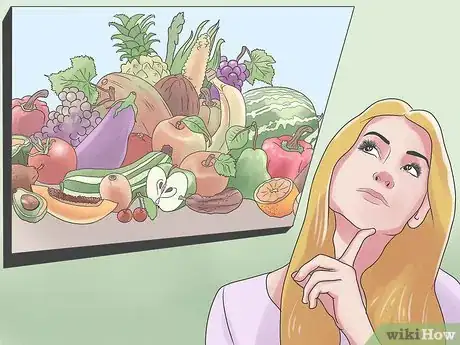

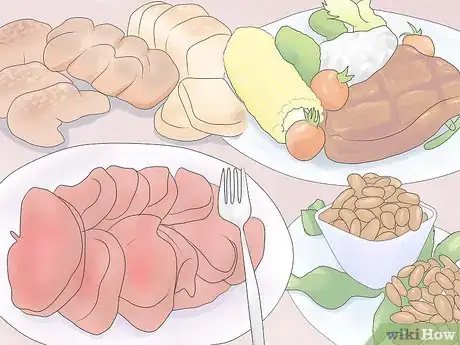

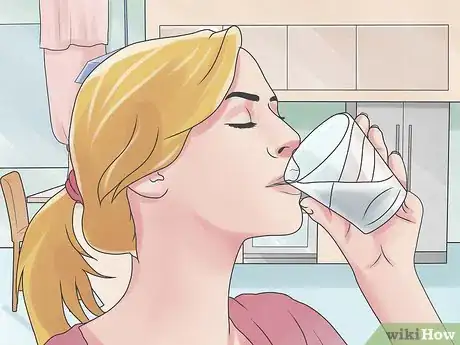

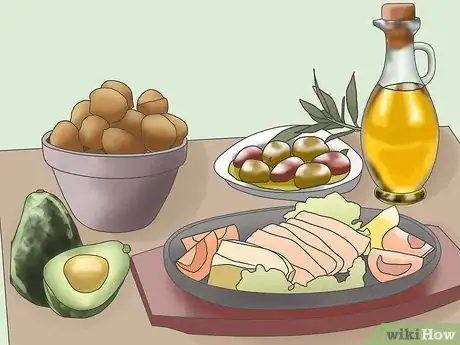
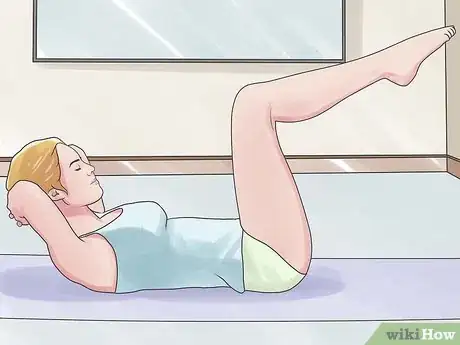

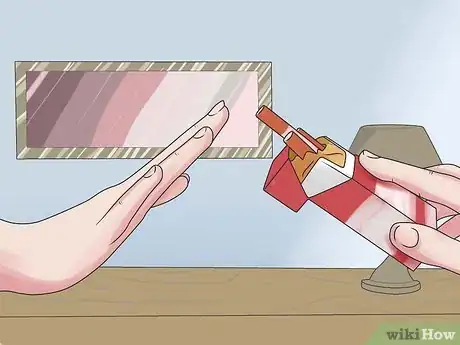

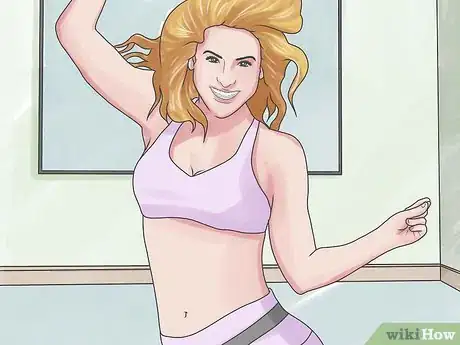
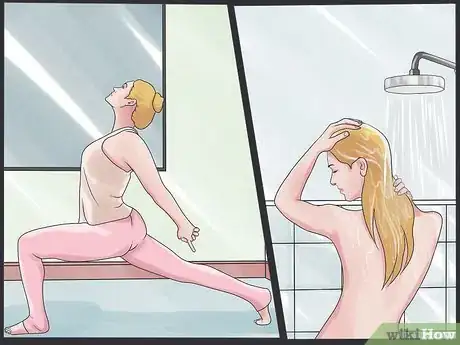


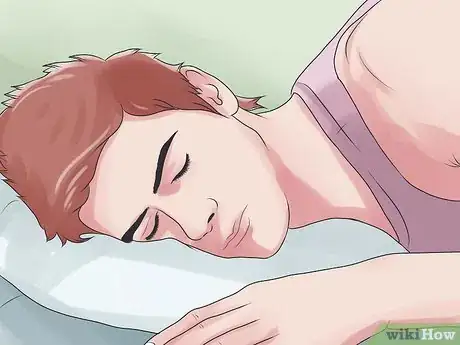


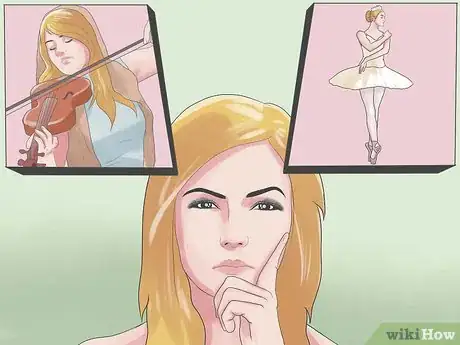

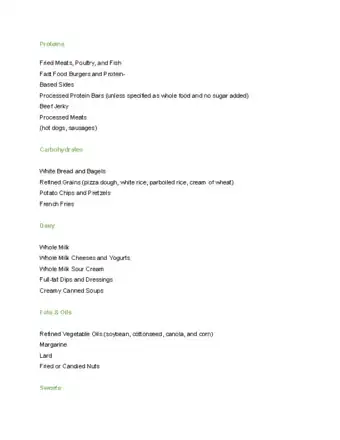







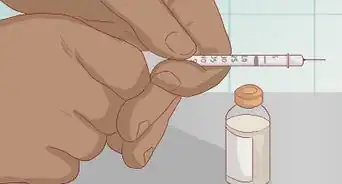

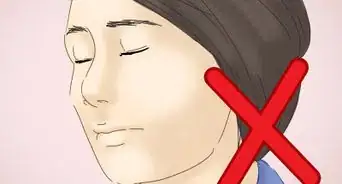

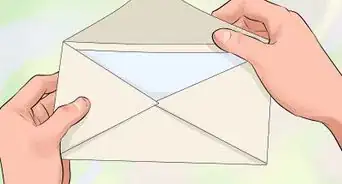










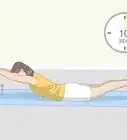

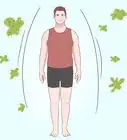




































Medical Disclaimer
The content of this article is not intended to be a substitute for professional medical advice, examination, diagnosis, or treatment. You should always contact your doctor or other qualified healthcare professional before starting, changing, or stopping any kind of health treatment.
Read More...